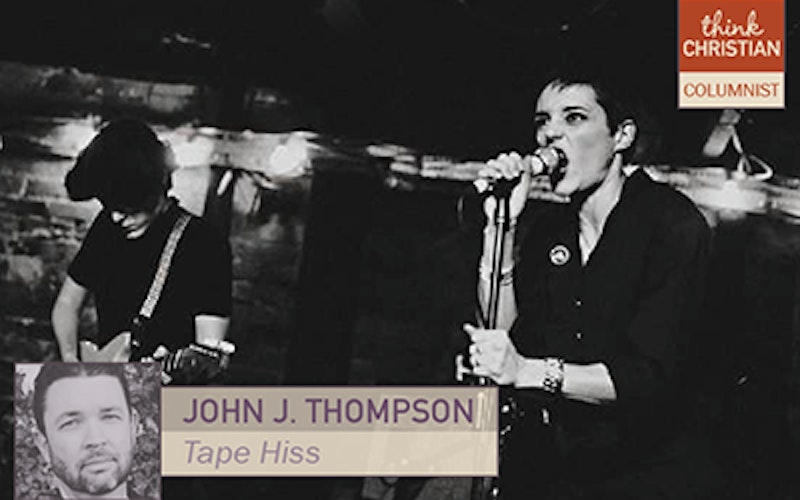
Music
Savages and the longing for relationship
There is a defiant longing throughout the debut release Silence Yourself, by Savages. The visceral, 1980’s-inspired alternative rock crafted by this all-female quartet is focused, powerful, crass, intentional and frenetic. The message carried by the sound is as urgent as anything I’ve heard from a rock band in a long time.
Buzz in the United States started to build around Savages after the release of a couple of singles and a live EP last year and their appearance at South by Southwest six months ago. Breathless critics, such as Sound Opinions’ Jim DeRogatis, referenced alt-rock giants of the past such as Siouxsie and the Banshees, The Slits, Wire and Echo and the Bunnymen - even as they promised that Savages was no retro tribute act. The band’s live show has been called dangerous, engaging, unapologetic and exhilarating. The glowing reviews have piled high, with most commentators and fans referencing the band’s now famous manifesto against the dehumanization of our supposedly “connected” world in general and cell phones at their shows in particular.
Like most great art, Savages rarely come right out and say what’s on their mind. Through the stripped-down guitar/bass/drums format the band crafts jagged sounds and confrontational lyrics without ever becoming preachy or didactic. The themes are surprisingly sympathetic to those that were explored by the aforementioned bands that roamed the earth three decades ago. While the early ’80s are practically prehistoric by modern media standards, the mournfully defiant wail of Savages intones the best of that angular, alternative era as it contemplates the increasing decay of community under the weight of a billion microchips.
The specter of tech is not really the point, though. These are songs about fractured relationships, broken intimacies and painful searches for touch of one sort or another. Sure, we may be routinely trading the real for the virtual, but that’s a human problem that goes back to Eden. You get the feeling that vocalist Jehnny Beth, obviously raised in the social-media era, has made it to adulthood and is not impressed by what she finds. Even the love she finds is full of pain. The character singing “Hit Me” is begging for some contact, even if it’s violent. On “City’s Full,” a distinction is presumably made between true, meaningful connection and the “sissy pretty love” that crowds it out. On “Strife,” “No Face” and “Waiting for a Sign,” the singer plunges further into the darkness in search of something satisfying.
The defiant wail of Savages contemplates the increasing decay of community under the weight of a billion microchips.
Most of the lyrics function in much the same way as an impressionistic painting. Just enough is left on the canvas for the viewer to be impacted in some way, without the artist forcing one particular reaction or another. The prevailing metaphors of intimacy (faces, bodies, words, kisses, beds, husbands) are reduced through repetition and distortion, while the band creates an equally powerful and disturbing ambience. The one possible exception is the almost prayer-like “I Am Here.”
I am here
No more fear
No more dark shadows
Let it come
Let me talk to you
See the face of your future
I don’t wanna hide
Here it calling you
Is this the voice of God injecting a hopeful presence into the madness? The juxtaposition of tone between these encouraging (and supremely confident) promises and the brokenness throughout the other songs is pronounced. Whether this is the voice of God or of some kind of internal connection to an inner self, the message seems to be that there is hope – be it ever so faint.
Savages’ music is very close to my ’80s alternative heart and the longing is reassuring to me. When I was about 13, around the same time I discovered music by Joy Division, Echo, U2 and The Cure, I also read C.S. Lewis’s Mere Christianity. One line still comes to my mind. “If I find in myself desires which nothing in this world can satisfy,” Lewis wrote, “the only logical explanation is that I was made for another world.” The sanctification of that longing – a longing echoed by Savages - saved my life.
Topics: Music, Culture At Large, Arts & Leisure